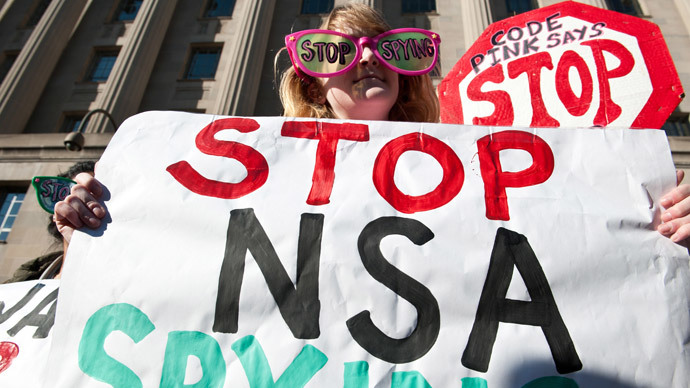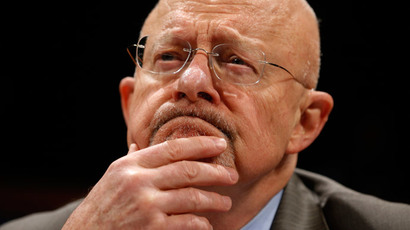Dueling NSA reform bills set for showdown in the House

A reform bill deemed as the toughest clampdown yet on the NSA’s collection of phone metadata is expected to move through a key US House committee this week, setting up a showdown between the bill and less stringent legislation supported by House leaders.
House of Representatives Judiciary Committee Chairman Bob Goodlatte (R-VA) will reportedly take action on the USA Freedom Act on Wednesday after the bill sat dormant since its introduction in October by former judiciary committee chair and US Patriot Act author Jim Sensenbrenner (R-OH).
The bill is the favored legislative vehicle for privacy advocates that want to see reform of the NSA’s bulk collection of domestic phone call data. Congressional aides believe the bill will pass through the committee with bipartisan support, the Guardian reported. Privacy advocates believe the bill has real potential to pass in a general House vote should it get the chance.
The House Judiciary Committee’s USA Freedom Act was left for dead by House Republican leadership after a competing NSA reform bill was offered in March by House Intelligence Committee Chairman Mike Rogers. The intel committee’s proposal would allow the NSA to continue gathering domestic call data without a prior judicial order.
Hours after the Judiciary Committee announced it would markup its NSA bill on Wednesday, the Intelligence Committee said it would do the same with its own reform bill, the FISA Transparency and Modernization Act, on Thursday. FISA, or the Foreign Intelligence Surveillance Act, dictates US surveillance of "foreign intelligence information" that can include American citizens or permanent residents suspected of terrorism.
Goodlatte’s support for the USA Freedom Act was reportedly in doubt before House Republican leaders decided to bypass his committee effort to reform the NSA in favor of the Intelligence Committee’s more lukewarm legislation.
The Intelligence Committee’s Rogers has criticized the USA Freedom Act for going too far in curbing bulk collection capabilities that, he says, are vital for national security reasons.
Sensenbrenner’s USA Freedom Act was initially more strict in limiting NSA collection abilities, positing that it would “end bulk collection under Section 215 of the Patriot Act, in light of the massive intrusion on Americans’ privacy and the lack of evidence of its effectiveness.”
The bill has since seen some compromise among its top supporters, including top committee Democrat John Conyers. The committee will consider a manager’s amendment to the bill which would prohibit bulk collection data under Section 215 of the Patriot Act while keeping intact the “relevancy” standard for collection authority. Yet the bill grants the government "emergency authority" to use Section 215 for "tangible things."
"The attorney general may authorize the emergency production of tangible things, provided that such an application is presented to the court within seven days," the amendment reads. "If the court denies an emergency application, the government may not use any of the information obtained under the emergency authority except in instances of a threat of death or serious bodily harm."
The government would still collect domestic phone metadata, though with a judge’s individualized order hinging on “reasonable articulable suspicion” of misconduct, and it can collect call records two degrees, or “hops,” of separation from a suspect.
The compromised version softens its original ban on “backdoor searches,” or searches through communications content dragnets of Americans’ data.
The bill does offer some liability protection to companies that give the government access to stored customer metadata, as well as opportunities to seek compensation for working with government surveillance operations.
The White House has not indicated its support for either of the two House bills. President Barack Obama advocated reform to the NSA’s bulk collection practices in March. Under the White House proposal, the US government would no longer collect these records in bulk, and instead they would remain in the possession of the telecommunication companies where they originate from for as long as those telecoms currently allow.
The USA Freedom Act has a companion bill in the Senate, authored by Democrat Patrick Leahy.
The NSA’s bulk collection of domestic telephony metadata was the first revelation that was published nearly one year ago among the leaked documents supplied by former intelligence contractor Edward Snowden.














